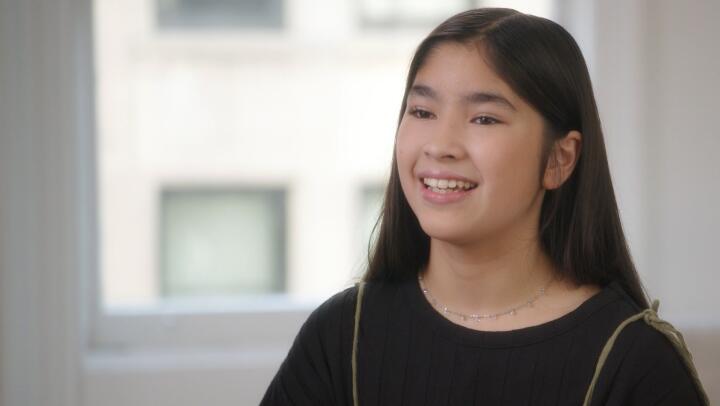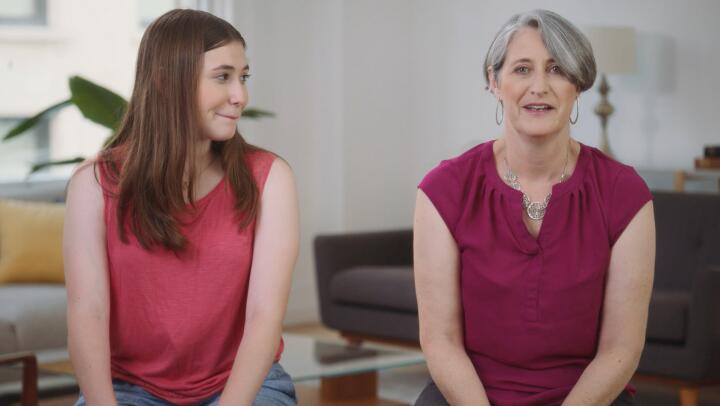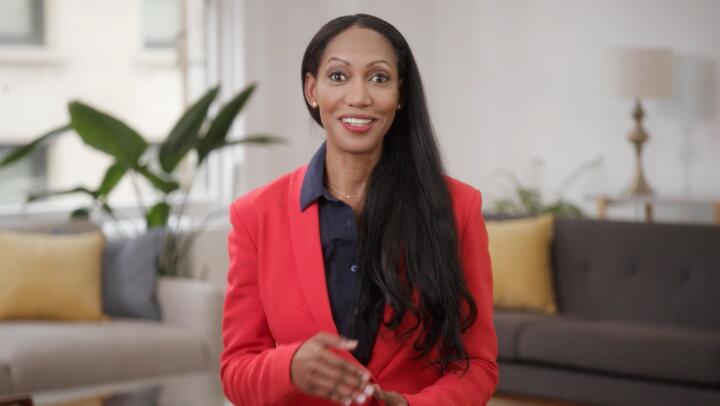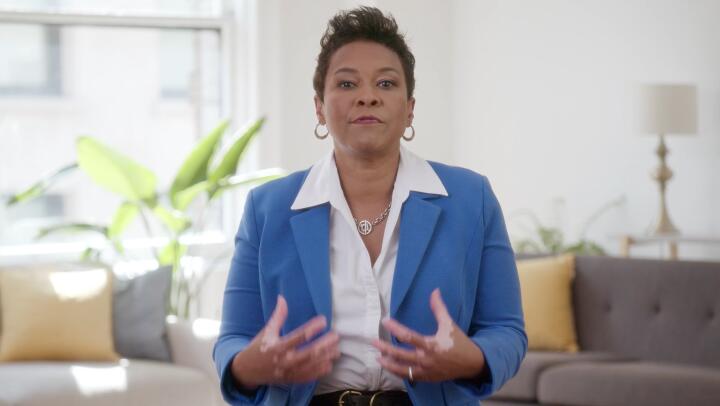10 Things Your Doctor Wants You to Know About ADHD
By
Cindy Kuzma
Last Updated: September 19, 2023
-
 From the ExpertsMost kids daydream, lose focus, or act out every once in a while. But for some, these symptoms interfere with school work or social activities. About 3 to 5% of American children—more boys than girls—have attention-deficit/hyperactivity disorder, or ADHD. Here’s what the health experts who treat ADHD wish more kids and parents understood about the condition.
From the ExpertsMost kids daydream, lose focus, or act out every once in a while. But for some, these symptoms interfere with school work or social activities. About 3 to 5% of American children—more boys than girls—have attention-deficit/hyperactivity disorder, or ADHD. Here’s what the health experts who treat ADHD wish more kids and parents understood about the condition.
-
 1. “ADHD is as real as diabetes, asthma, or heart disease.”Some parents brush off ADHD as no big deal. They don’t want to admit their child has a medical condition. Or they may think doctors and drug companies merely want to sell more treatments. Not true, according to neuropsychologist Lee Ann Grisolano, PhD. “ADHD is a neurobiological disorder,” she says. “It requires treatment just like any other biological, organic disorder that affects an individual's quality of life.”
1. “ADHD is as real as diabetes, asthma, or heart disease.”Some parents brush off ADHD as no big deal. They don’t want to admit their child has a medical condition. Or they may think doctors and drug companies merely want to sell more treatments. Not true, according to neuropsychologist Lee Ann Grisolano, PhD. “ADHD is a neurobiological disorder,” she says. “It requires treatment just like any other biological, organic disorder that affects an individual's quality of life.”
-
-
 2. “Diagnosis can be difficult.”Although ADHD is very real, no blood test or brain scan can spot it. “The causes of inattention and hyperactivity can be many, including underlying medical problems such as thyroid disease, learning disorders, speech and language disorders, childhood anxiety or depression, and problems in the home,” says psychiatrist Timothy Houchin, MD. Specialists diagnose the condition based on symptoms or by using devices that detect body movements.
2. “Diagnosis can be difficult.”Although ADHD is very real, no blood test or brain scan can spot it. “The causes of inattention and hyperactivity can be many, including underlying medical problems such as thyroid disease, learning disorders, speech and language disorders, childhood anxiety or depression, and problems in the home,” says psychiatrist Timothy Houchin, MD. Specialists diagnose the condition based on symptoms or by using devices that detect body movements.
-
 3. “The consequences can be serious.”Kids and teens with poorly treated ADHD face a higher risk of depression, anxiety, substance abuse, and even suicide. But with proper care, the same troubled young people can thrive. “ADHD, appropriately treated, leads to a higher likelihood of success in life because it can help the child properly channel his increased sensitivity, creativity, and high energy,” says psychologist Robert Myers, PhD.
3. “The consequences can be serious.”Kids and teens with poorly treated ADHD face a higher risk of depression, anxiety, substance abuse, and even suicide. But with proper care, the same troubled young people can thrive. “ADHD, appropriately treated, leads to a higher likelihood of success in life because it can help the child properly channel his increased sensitivity, creativity, and high energy,” says psychologist Robert Myers, PhD.
-
 4. “Medication alone won’t work.”Research shows the best treatment combines stimulant medication with psychotherapy, says psychiatrist Gayani DeSilva, MD. “Medications are not a cure for anything happening in the brain,” she says. “Treatment must include a physical and emotional aspect, too.” Cognitive behavioral therapy, therapy with parental involvement, brain exercises, and play therapy can help kids cope. In some cases, these treatments alone can help kids regain concentration and focus, Dr. Myers says. But some kids need medication as well.
4. “Medication alone won’t work.”Research shows the best treatment combines stimulant medication with psychotherapy, says psychiatrist Gayani DeSilva, MD. “Medications are not a cure for anything happening in the brain,” she says. “Treatment must include a physical and emotional aspect, too.” Cognitive behavioral therapy, therapy with parental involvement, brain exercises, and play therapy can help kids cope. In some cases, these treatments alone can help kids regain concentration and focus, Dr. Myers says. But some kids need medication as well.
-
 5. “Drugs shouldn’t make your kid a zombie.”People respond differently to different medications, so it’s important to keep in close touch with your child’s doctor to fine-tune the treatment plan. Tell the doctor if your child has serious side effects, including drastic personality changes. But don’t assume any early missteps means medication won’t ever help. “Work with a physician who is willing to try other medications and dosage levels until a satisfactory result is achieved,” Dr. Grisolano says.
5. “Drugs shouldn’t make your kid a zombie.”People respond differently to different medications, so it’s important to keep in close touch with your child’s doctor to fine-tune the treatment plan. Tell the doctor if your child has serious side effects, including drastic personality changes. But don’t assume any early missteps means medication won’t ever help. “Work with a physician who is willing to try other medications and dosage levels until a satisfactory result is achieved,” Dr. Grisolano says.
-
-
 6. “Routine and structure at home can help.”Take a look at your family’s lifestyle. Try to keep things on a regular schedule outside of school hours. Extracurricular activities can help enhance social skills. But don’t overbook them, and choose those that play to kids’ strengths. For instance, athletically inclined children might do well on sports teams, Dr. Grisolano says. But those who fear interacting with others often prefer solo sports like golf and swimming.
6. “Routine and structure at home can help.”Take a look at your family’s lifestyle. Try to keep things on a regular schedule outside of school hours. Extracurricular activities can help enhance social skills. But don’t overbook them, and choose those that play to kids’ strengths. For instance, athletically inclined children might do well on sports teams, Dr. Grisolano says. But those who fear interacting with others often prefer solo sports like golf and swimming.
-
 7. “Having ADHD doesn’t make a child difficult.”View diagnosis and treatment as opportunities to understand your child better. Work together on brain exercises, and provide encouragement and coaching. A strong relationship between you and your child helps you hold your child accountable without damaging his or her self-esteem. “I would really like to see the last letter in ADHD stand for difference rather than disorder,” Dr. Myers says. “It is very important to not let the label be a crutch for your child to avoid responsibility.”
7. “Having ADHD doesn’t make a child difficult.”View diagnosis and treatment as opportunities to understand your child better. Work together on brain exercises, and provide encouragement and coaching. A strong relationship between you and your child helps you hold your child accountable without damaging his or her self-esteem. “I would really like to see the last letter in ADHD stand for difference rather than disorder,” Dr. Myers says. “It is very important to not let the label be a crutch for your child to avoid responsibility.”
-
 8. “But ADHD does affect judgment and responsibility.”Brain areas that control impulses grow more slowly in kids and teens with ADHD. “This has strong implications for the age at which children and adolescents are given independence with respect to managing a cell phone, using the internet, driving without adult supervision, or leaving home to live independently,” Dr. Grisolano says. Work closely with your child’s doctor to monitor his or her development. And carefully consider these factors when making rules and decisions.
8. “But ADHD does affect judgment and responsibility.”Brain areas that control impulses grow more slowly in kids and teens with ADHD. “This has strong implications for the age at which children and adolescents are given independence with respect to managing a cell phone, using the internet, driving without adult supervision, or leaving home to live independently,” Dr. Grisolano says. Work closely with your child’s doctor to monitor his or her development. And carefully consider these factors when making rules and decisions.
-
 9. “You don’t develop ADHD in adulthood.”ADHD is neurobiological, which means you have it from an early age, Dr. DeSilva says. That said, if ADHD goes undiagnosed, you can reach 18 or older without realizing it’s to blame for things like relationship struggles and difficulty holding jobs. ADHD has a strong genetic component, so many parents seek out help for themselves once their children receive a diagnosis. “Adult ADHD is treatable, and that’s imperative for increasing the quality of life for these individuals,” Dr. Grisolano says.
9. “You don’t develop ADHD in adulthood.”ADHD is neurobiological, which means you have it from an early age, Dr. DeSilva says. That said, if ADHD goes undiagnosed, you can reach 18 or older without realizing it’s to blame for things like relationship struggles and difficulty holding jobs. ADHD has a strong genetic component, so many parents seek out help for themselves once their children receive a diagnosis. “Adult ADHD is treatable, and that’s imperative for increasing the quality of life for these individuals,” Dr. Grisolano says.
-
 10. “Communication is key.”“Children with ADHD are at high risk of being abused and being bullied,” Dr. DeSilva says. Ask your child about his or her relationships and interactions with peers and adults. Talk regularly with teachers, coaches, and day care staff. Keep notes and letters from them, and bring those—along with a list of your own questions and concerns—to your child’s doctor appointments. And choose a provider who listens to and understands your child’s needs.
10. “Communication is key.”“Children with ADHD are at high risk of being abused and being bullied,” Dr. DeSilva says. Ask your child about his or her relationships and interactions with peers and adults. Talk regularly with teachers, coaches, and day care staff. Keep notes and letters from them, and bring those—along with a list of your own questions and concerns—to your child’s doctor appointments. And choose a provider who listens to and understands your child’s needs.
10 Things Your Doctor Wants You to Know About ADHD




















